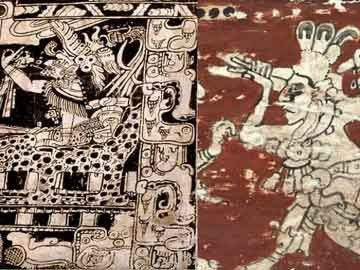Prophecy of Apocalypse in December 2012 Can Rest in Peace; The Mayans Never Meant That

The oft-debated doomsday prophecy that the Mayan calendar foretold for Dec. 21, 2012, can now be dismissed, as experts now believe that the ancient Central American civilization never actually predicted the end of the world.
The National Institute of Anthropology and History in Mexico said, in a statement issued on Wednesday, they had decoded substantial amounts of the Mayan calendar. Apparently, the date in 2012 refers to the end of the 13th B'ak'tun era and not the world itself.
The Mayans divided their calendar into cycles of 1, 20, 360, 720 and 144,000 days each. The last count (20 cycles of 720 days each) marks the end of one Long Count, after which the calendar shifts to the next 144,000 day cycle, each of which is called a B'ak'tun. In the Mayan calendar, therefore, each B'ak'tun consists of 400 years and the dreaded date, Dec. 21, 2012, only marks the start of the 14th cycle.
The Mayan calendar arithmetic shows that the completion of the 13th Bak'tun is simply the end of a period and the transition to a new cycle, said Sven Gronemeyer, a researcher of Mayan codes at La Trobe University in Australia.
Gronemeyer, who has been working on deciphering the Mayan script inscribed on the site of Monument 6 at the Tortuguero site in Tabasco, Mexico, dispelled any belief that Mayans predicted doomsday in 2012. According to Gronemeyer, the mystical event predicted for Dec. 21 is the return of the Mayan god of creation, Bolon Yokte.
Since the deity was present at the day of creation in 3,114 B.C., it was quite obvious for the Mayans to predict that Bolon Yokte will return on the day of beginning of a new era, he explained.
© Copyright IBTimes 2024. All rights reserved.





















